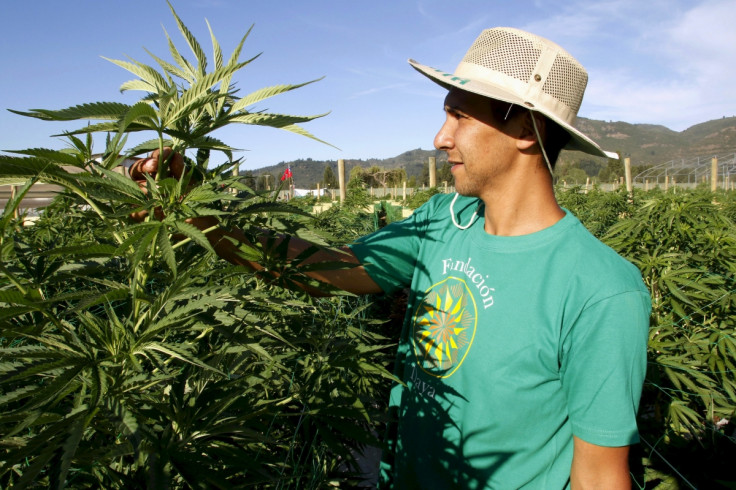Chile opens largest medical marijuana farm in Latin America

Chile officially has the largest medical marijuana farm in Latin America. The plantation with 6,900 stalks is located in a small town called Colbun, about 170 miles (270km) south of the capital Santiago.
The decision to start the farm comes amid ongoing debate about decriminalising the cultivation of small amounts of marijuana for personal use. Around 4,000 patients suffering from illnesses such as chronic pain, complications associated with cancer and epilepsy would benefit from the therapeutic uses of the plant.
The project belongs to a private foundation and is led by Ana Maria Gazmuri, a soap opera star and holistic medicine advocate. She claimed that the project was delayed as it encountered stiff opposition from some government officials. However, she added that "its formal inauguration is definitely a positive sign".
"This farm will further permit people to see for themselves the reality of the plant, and what its uses are," Gazmuri told Reuters. Under supervision of the government's agricultural services, those involved in the project are looking to harvest 1.5m tonnes of medicinal marijuana between March and May 2016. A variety of laboratories and universities will be roped in to develop cannabis-based therapies for patients as well.
Uruguay became the first county in the region that legalised medicinal marijuana in 2013. In November last year, a Mexican court legalised the cultivation of cannabis in limited amounts, while Colombia's President Juan Manuel Santos, signed a decree in December 2015 legalising medical marijuana. He has also clarified that the fight against illicit cultivation and drug trafficking would continue.
Following the developments, the legal marijuana industry has grown rapidly at an estimated value of approximately $2.7bn (£1.9bn). However, there are growing concerns that the drop in illicit marijuana exports has led to many cartels diversifying to hard drugs, stealing crude oil from pipelines and sex trafficking to compensate for the loss.
© Copyright IBTimes 2025. All rights reserved.





















